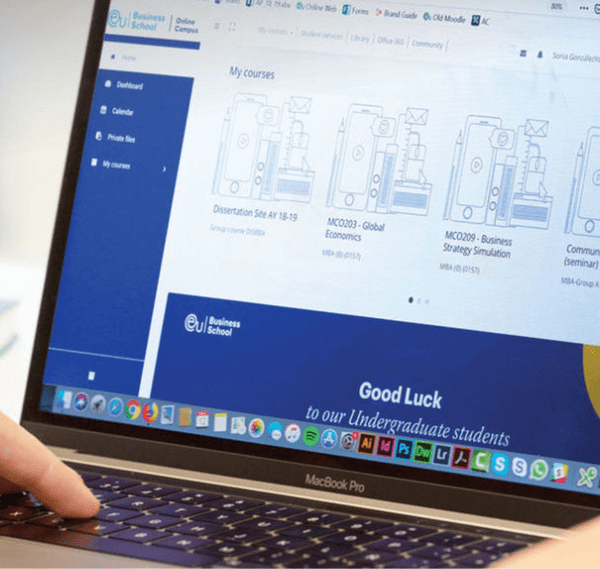At the risk of being philosophical, the answer to this question may depend on how you define success. Most would agree that success is a subjective concept that is deeply personal. The majority would also agree that success is usually measured by a combination of: individual fulfillment, professional achievement, goal attainment, impact and contribution, and growth and learning.
Achieving a balanced life that includes physical, mental, and emotional well-being may be the ultimate measure of success. This means managing stress, maintaining good health, and finding time for relaxation and enjoyment.
So, is a business degree the key to all this? It could be.
In the 1980s, business-oriented education was limited to an undergraduate degree in Business Science and a postgraduate MBA from one of the few business schools. This limited offering has changed dramatically in the last 50 years.
What is a Business Degree?
This degree provides a comprehensive understanding of business principles and practices, preparing you for a wide range of careers in the business world. Business degrees can be obtained at different educational levels, including associate, bachelor’s, master’s, and doctoral degrees.
Types of Business Degrees
- Foundation Programs: EU Business School offers two foundation programs for one semester. These programs prepare students for English proficiency (English Foundation Program) and business basics (Business Bridging Program). They provide students with the grounding and confidence to tackle a Bachelor’s degree – and 97% of students go on to complete an EU degree.
- Bachelor’s Degree in Business: This is a three-year undergraduate program that covers a broad range of business topics. Fundamental courses usually include accounting, finance, marketing, management, economics, business law, and business ethics. One of the following undergraduate degrees at EU Business School may be conferred on completion:
- Bachelor of Science in Business Finance (BS)
- Bachelor of Arts (BA) in one of the following subject specializations: Digital Communication, Leisure & Tourism Management, International Relations, Sports Management, or Digital Business, Design & Innovation.
Bachelor of Arts (Honours) degrees in Business or Business Management are also offered in a wide range of specializations, including Marketing, Finance, Enterprise, and International Business; Management, Project Management, Human Resource Management, Law, Information Systems; and the new field of Artificial Intelligence (AI) for Business.
- A Master’s Degree in Business is an advanced graduate program that typically takes one to two years to complete. An increasingly wide range of subject specializations is on offer within the Master of Business Administration (MBA), including:
- Tourism & Hospitality, Innovation & Entrepreneurship, Digital Business, Fashion & Luxury Business, Digital Marketing, Transformation & Design Thinking, Business Analytics & Data Science, Artificial Intelligence for Business, Digital International Relations & Diplomacy, Global Banking & Finance, Project Management, and Cloud Computing.
- Doctoral Degree in Business: This is the highest academic degree in business, focusing on research and advanced theory. EU Business School confers a Doctor of Business Administration (DBA) on those students who have successfully completed the challenging, rigorous, and stimulating program designed to increase managerial, leadership, and academic competencies.
Core Components of a Business Degree
- Practical Experience: Business programs often include internships, co-op placements, and interactive projects to provide real-world experience. At EU Business School, for example, students complement the interactive lecture input taught by business professionals and industry experts by being exposed to company visits, guest speaker sessions, seminars, individual assignments, group projects, and business simulations. This enhances their capacity for creative and entrepreneurial thinking, in preparation for shaping the future of business.
- Thesis: Sometimes called a capstone project, many business degrees culminate in a project that allows students to apply what they’ve learned to a real-world business problem. At EU Business School, these group projects are interdisciplinary, which encourages sharing knowledge and skills in preparation for what would happen in the real world of work.
Keys to Success
As seen from the range of choices available at EU Business School, business degrees have become increasingly specialized. This provides the following four keys to success:
- A business degree prepares you for a real job in the real world. The practical experience gained through group project work and company visits, while studying theoretical concepts, prepares you to walk into a job interview fully prepared.
- A business degree strengthens your CV. Company recruiters want to see that you have mastered the latest business concepts as well as the ability to apply these concepts in a practical, hands-on group setting.
- The degree provides evidence of practical experience. Today’s innovative businesses are not interested in ivory-tower academic qualifications. They want to see evidence that you have applied your learning and been able to work as a team.
- The degree provides evidence of specific skills development. Students graduating with a business degree typically acquire skills in critical thinking and problem-solving, effective communication, leadership and team management, analytical and quantitative analysis, and strategic planning and decision-making.
Overall, a business degree from EU Business School provides a versatile and comprehensive education that equips students with the knowledge and skills needed to succeed in the dynamic and competitive world of business. For more information about studying at EU Business School, click here.










